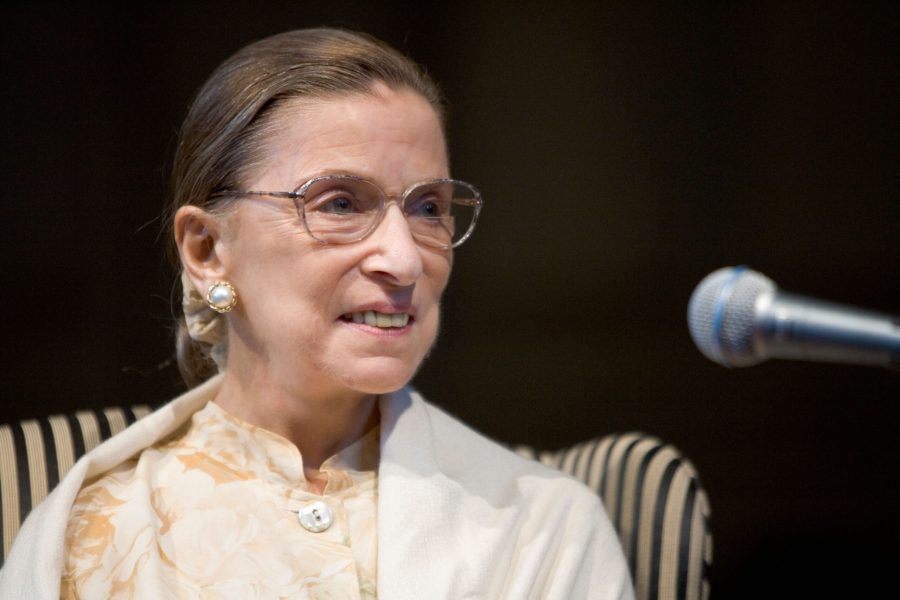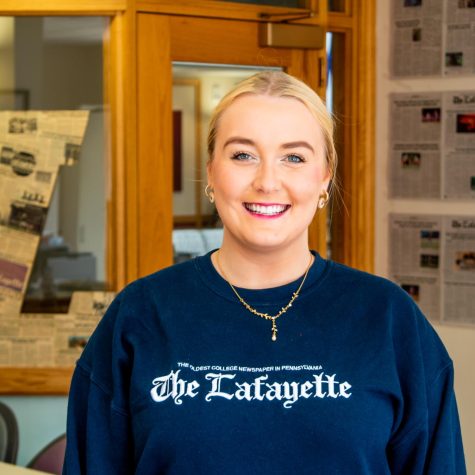This past Friday, Supreme Court Justice Ruth Bader Ginsburg passed away at the age of 87. She served on the top US court for 27 years after being sworn-in in 1993.
Throughout her career, Ginsburg was a legal pioneer on both sides of the bench, and in time has come to be revered as a feminist and pop culture icon. Statements provided by faculty of the Government and Law Department testify to her indelible mark on American history, with professor John Kincaid naming her “the single most important twentieth-century woman to advance women’s rights because of her impact on American law before and during her service on the U.S. Supreme Court.”
Helena Silverstein, Government and Law department head and professor, reflected further on her time as a lawyer and judge.
“In the 1970s, while serving as director of the Women’s Rights Project at the American Civil Liberties Union, she strategically blazed a trail in a line of cases before the Supreme Court that established constitutional protection for women’s rights,” Silverstein said. “She continued her unwavering commitment to equality as a member of the Supreme Court, bringing her extraordinary intellect, astonishing work ethic, and deep passion for justice to bear on civil rights, voting rights, and civil liberties.”
Beyond her contributions to American law, Ginsburg has become something of a political celebrity as a symbol of intellectual might, polished dissent and hope for a more equal future touching many of Lafayette’s own.
“I feel like RBG just herself as a female lawyer who fought for gender equality throughout her entire career is what we strive to do at Women in Law,” said Jules Bernstein ’22, vice president of Lafayette’s Women in Law organization. “She was a lawyer in a time when no females were really considered for these jobs at all, and then she got onto the highest court in the nation.”
Bernstein explained that she owns Ginsburg-stamped socks and t-shirts, and describes herself as an RBG fan outspoken enough in her affection that she received messages of condolences when the news of Ginsburg’s death broke.
“I’m Jewish and Ginsburg’s Jewish and it was also on a Jewish holiday, the New Year, so that also felt really weird and trying to have a celebratory holiday…while hearing that she passed was just devastating,” Bernstein said.
Kirby Government and Law Society (KGLS) President Eleanor Griffiths ’22 and Vice President Yordanos Mengistu ’22, orchestrated an event through Women in Law and KGLS about Ginsburg and the fate of the court on the Monday preceding her death. For Griffiths and Mengistu, the “RBG, the Roberts Court, and the 2020 Election” panel held with professor Bruce Murphy foreshadowed the conversations currently taking place regarding the court’s new vacancy.
“This is going to shift the focus of the election from COVID…and the replacement debates that we are having right now I think are doing her a disrespect,” Mengistu said, emphasizing the short time since Ginsburg’s passing and precedence for court nominations at the end of a president’s term.
“Her legacy is going to last hopefully for the rest of time, but the legacy of whoever replaces her seat will last at least the next 40 years, probably more,” Griffiths added.
For both Mengistu and Griffiths, the most important next step is getting people out to vote. Fortunately, those efforts have been facilitated in the community by organizations like KGLS, Lafayette Votes and the Landis Center for Community Engagement.
“We shouldn’t be idolizing politicians…and she wasn’t perfect by any means, but there is no denying…I couldn’t have a credit card without her, I couldn’t buy a house without her, I could be fired from my job because I was pregnant if it wasn’t for her,” Griffiths said.
“Even if you don’t really agree with her politics or her specific decisions, you can at least appreciate how she was able to rise up against adversity, and that’s something we can thank her tremendously for,” Bernstein added.
Prior to her passing, the college began the process of commissioning a portrait of Ginsburg to add to its internal collection, funded by the Kirby Foundation. This portrait, when completed, will join the other “distinguished figures from American history” in the Kirby Hall of Civil Rights, according to President Alison Byerly.
“We had decided not long ago that Ruth Bader Ginsburg is someone we would like to honor with a portrait,” Byerly said. “It was incredible to see this outpouring of sadness…when she passed away, and I certainly felt myself deeply moved as someone who has long admired her for her success not only as a women in a position that many have attained but also as a rigorous lawyer and judge who has strong principles and maintains it.”























































































































